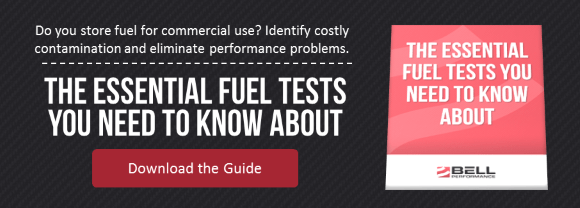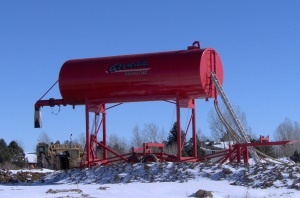Use a hybrid approach for maintaining stored fuel
The fuel treatment and fuel cleaning or polishing markets are ultra-competitive. They’re filled with entities that will tell you whatever they think...
1 min read
Erik Bjornstad : Jun 24 2016

By now, hopefully you’re convinced that if you have or are trying to prevent stored fuel problems, the best partner for you is one that uses a hybrid approach. One that combines effective mechanical remediation with chemical treatments to give you the best of both worlds (apologies to Miley Cyrus).
 To make the process work most optimally, attention to details on both sides needs to be paid. Shirking the quality on either side reduces overall effectiveness. And that’s not good news for you.
To make the process work most optimally, attention to details on both sides needs to be paid. Shirking the quality on either side reduces overall effectiveness. And that’s not good news for you.
On the chemical side, there’s more potential variability on the chemicals used because there are so many options out there. Many of them aren’t good options. Why do you think the additive industry has the reputation for snake oil?
If your partner isn’t using the best quality chemical treatments, your results will be subpar and you won’t get what pay for for. How do you know if your proposed partner does use high quality chemicals?
Product claims aren’t enough, because, to be honest, anyone can write anything and claim whatever they want. You’ve got plenty of other things to worry about without being expected to be an expert in distinguishing between bogus and legitimate claims.
First, they should be able to explain why the chemicals they’re putting into your storage tank are good. Why did they choose to use this over another? What makes their product of choice better than another one?
Second, if the chemicals are being used in on-road fuel, they should be EPA-registered. This is important because it protects you from possibly putting unsafe ingredients into your valuable fuel. Plus, it shows that whoever formulated the additive isn’t a fly by night operation. A legitimate formulator of fuel treatments will have taken the time to follow through with this.
While these won’t tell you everything, following these two recommendations can give you at least a better clue that your partner is trying to ensure you’re getting the highest quality treatments to solve your stored fuel problems.


The fuel treatment and fuel cleaning or polishing markets are ultra-competitive. They’re filled with entities that will tell you whatever they think...

Anybody can build a filtering machine (or something that looks like it) and then attempt to go into the fuel filtration business. This fact means...

Back in the day, the storage life of both diesel and gas was measured in years, not months. That’s not the case any more. Once you get past 6 months...